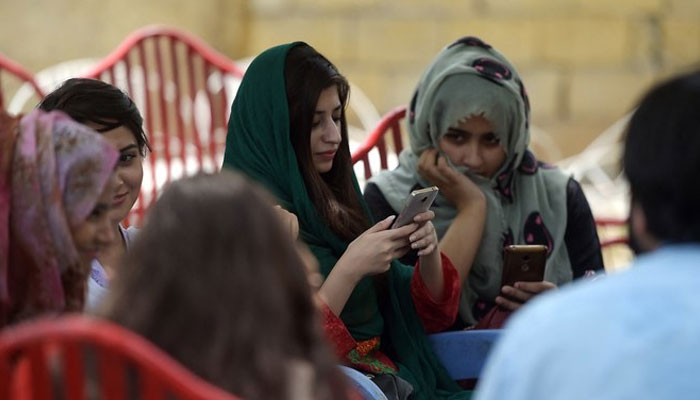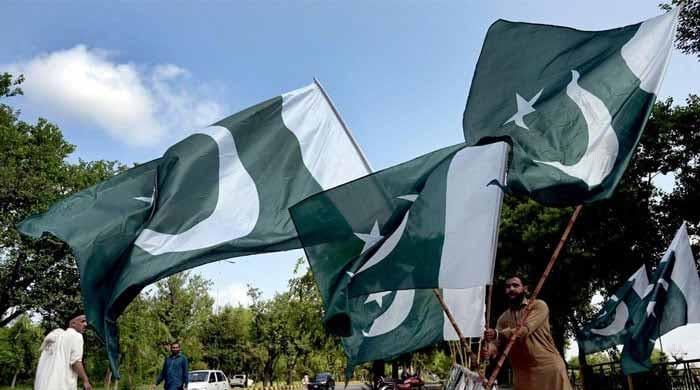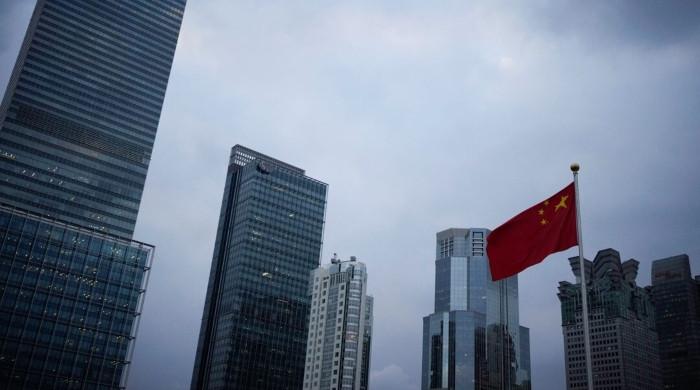Social media and Pakistan
Social media is improving political socialisation and political culture, but it is making fragile system vulnerable to menace of cult following
March 31, 2024

There was a time when many of us did not pay heed to the alarms being raised by revered political rhetoricians that social media would change global realities entirely. Pakistan is facing an unprecedented time in its brief history after independence.
Social media in the presence of youth bulge is checkmating entrenched feudalism, the establishment-controlled system, dynastic politics and the elite-fostered politics. Doubtless, social media is improving political socialisation and political culture, but it is making the fragile system vulnerable to the menace of cult following. Let's decipher the key lessons that came to the fore as a result of the advanced technology in the recent elections one by one.
First, the recent elections have made us believe that democracies in the 21st century will be shaped by optics provided by social media influencers. Any act of barbarism will be noted in the technological-led era and will be consumed en masse. The time has gone when kafkaesque ruled over collective intellect. It is an era where gerrymandering or any act of disregarding the people's choices will backfire massively. It is an era where the political realities could be manoeuvred only by embarking upon highly sophisticated skills. Political parties that seek the people's support in all circumstances will be more than happy if a system provides them with never-ending sympathetic feeds on social media. We can say that the establishment's inability to learn the modern dynamics of politics cost it highly undesired results.
Secondly, social media in the presence of youth bulge is depicting the fact that the traditional parties have to change its tactics before it is too late. Supporting dynastic politics or relying on electables completely cannot make them get the traction of the ambitious youth that is being consistently fed by idealistic trends on social media. Moreover, the party that gained the trust of the majority of people in the recent elections was way ahead of the traditional parties in conveying its stances on social media via virtual jalsas and other endeavours. Unfortunately, the traditional parties are in no mood to learn new trends and are blaming the youth and social media for their awful defeat.
Thirdly, political mobilisation in the age of social media has become an easy task for political parties that know how to manoeuvre things in their favour on modern platforms. The recent elections have made us believe that political battles can be fought from dark dungeons and a political entity could use artificial intelligence to guide its supporters even in the worst circumstances. It is one of the most unprecedented favours that the political leaders of the 21st century are enjoying in the presence of social media.
Fourthly, the rise of social media is making fragile political systems highly vulnerable to a cult following. Any political leader who can highlight social ills and present easy solutions to complex issues in states like Pakistan could attract millions of young people in the age of social media. Pakistan is considered vulnerable to the dangers of a cult following because a lot of idealistic trends are being consumed by a large number of young people. Dr Moeed Yusuf in his book "The Prospects of Youth Radicalisation in Pakistan" rightly said that extremism could become a fate of Pakistan if we do not create opportunities for the young population. The ongoing trends will definitely impinge upon the future of Pakistan.
Last but not least, all the institutions in the state were in the dock before the elections. They were facing real challenges in maintaining their repute in public. Why is it so? It is because every micro or macro decision regarding elections was being discussed by people in all aspects due to social media. It was high time for the institutions to learn how to manage realities in difficult times. Politics which was an easy task for the institutions in an uneasy federation is now becoming a difficult work for them in the age of social media.
To conclude, the impacts of social media in Pakistan warrant deep attention of political experts and stakeholders. Moreover, they should learn the reality that censoring ideas is not a permanent solution. It is rightly said that censorship is the child of fear and the father of ignorance. Instead of banning the platforms and blaming youth for all the kerfuffle being created as a result of the elections, the people in positions should learn how to run politics given the changing demography and the modern challenges.
The author is a freelance writer and businessman.
Disclaimer: The viewpoints expressed in this piece are the writer's own and don't necessarily reflect Geo.tv's editorial policy.









